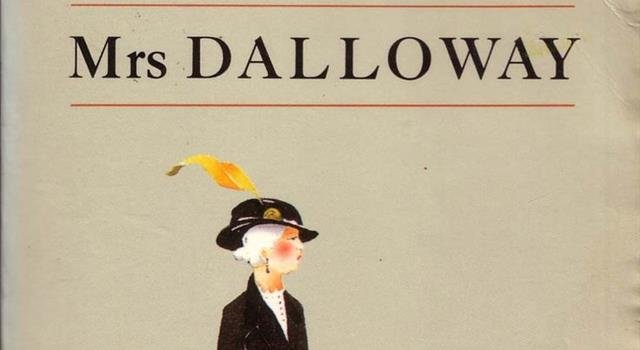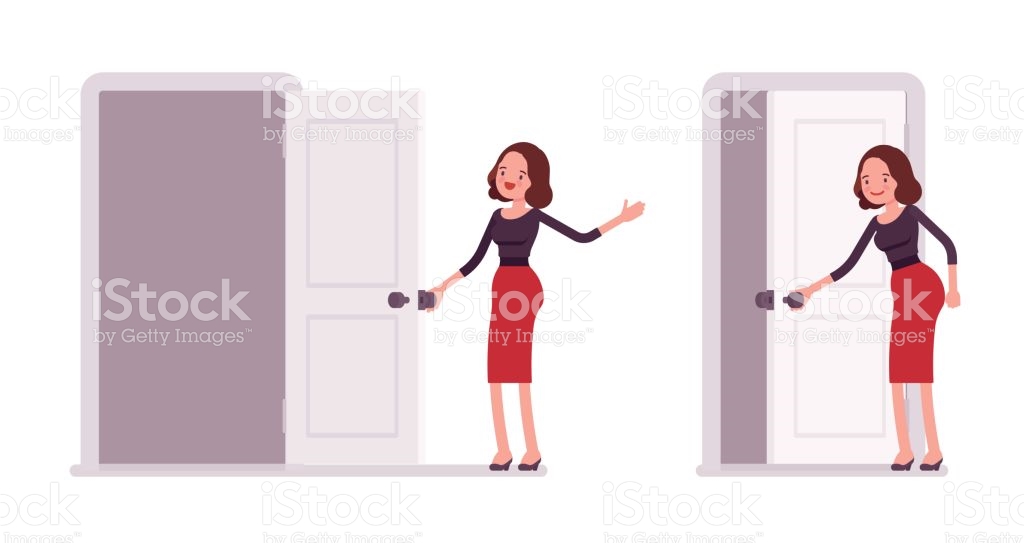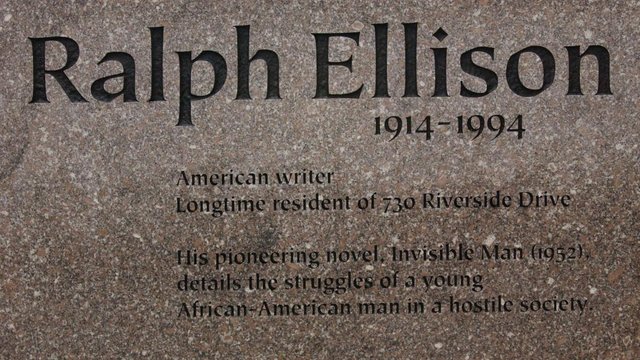The Beginning and End -- Deserving Prerogatives
THE OPENING
As a writer you’ve probably heard it said a gazillion times that the opening lines of a story/novel/book are the most important. Well, I hold a different view. For commercial purposes; for a budding writer—although even this is disputable—they might very well be. BUT, for a serious writer, they most certainly are not.
Now please don’t get me wrong. Opening lines are important. They draw the reader in and all that. But writers aren’t chicanerists. We’re not petty tricksters flinging on ropes doing somersaults and turning water to wine to attract viewers. While opening lines are important I believe a writer should not spend the chunk of valuable writing time coming upwith an attractive opening line that will inveigle the reader.
The bulk of the story is obviously the most important. And even amidst all the shouts about opening lines, everybody knows this fact. So in this post I’m not going to talk about that. What I will be talking about, however, is another aspect that has gotten nowhere near the emphasis that opening lines have gotten, and that is—closing lines.
Everyone needs closure. We’ve all probably had that experience where something amazing happened to you all day, and one final horrible invent nullified the whole memory for you. Does it matter that the day had began well; propitiously? Of course not. I feel such immense anger toward any book/art that has spent its time enticing me in only to leave me with the most unexceptional closing. Few books/movies/songs come to mind. But I’m not going to be writing about them.
There are also terrible events that happen, and whether you are able to recover from that event, or remain forever scarred by it, depends upon the kind of closure the event/the subject of the event gives or refuses to give you.
In the post then, to emphasize my point, I will be exploring some of the best novels I've ever read, with emphasis on their opening and closing lines.
Novel I: Mrs Dalloway by Virginia Woolf
Opening:

Mrs. Dalloway is a novel Virginia Woolf published in 1925. It is one of the two most admired of her works-- I'm absolutely in love with it, and I just prefer it to To the Lighthouse.
Instead of being elaborate with the opening, Virginia Woolf begins Mrs. Dolloway with nothing else but Mrs Dolloway--not only the character now, but with those exact same words--Mrs. Dolloway, which is nothing short of genius. In these four short, ornament less sentences, we are not only introduced to the character, but also to the novel as a whole--there is an air of auspiciousness in doors coming off its hinges; something akin to change, hope. And the flowers just seves to consolidate that feeling. But Mrs. Dolloway must get them herself; such is the caveat.
If you've read the story you'll know of the theme of change that pervades it; or rather the lack, or the resistance to change. All of these are laid out carefully by Virginia Woolf in these few opening sentences.
Closing:
“I will come,” said Peter, but he sat on for a moment. What is this terror? what is this ecstasy? he thought to himself. What is it that fills me with extraordinary excitement?
It is Clarissa, he said.
For there she was.
Richard has improved. This is an acknowledgement of maturity made by Sally Seton, the most unlikely person in that novel to make that admission.
I'm trying to avoid spoilers because I don't want to deny you the joy I had while reading this book. But even for those who haven't read, the awesomeness of this last lines are amazing. I shall go and talk to him. I shall say goodnight.
An acknowledgement of growth in a character that is basically her rival (Sally Seton was in love with Mrs. Dalloway too); a willingness to mend broken bonds (I shall go talk to him. I shall say good night). Intellectual deprecation from a character who perhaps might have the highest intellect in the book (what does the brain matter?), all manage to add their flavor of serene poignancy to the climax of the book. And what better way for a Virginia Woolf book to close.
Virginia Woolf's power as a writer has many facets. As a prose writer, she transends mere "prose", because her books read more as poetry than prose. (Her novel The Waves has no accepted genre). And yet it is in the pathos pf her characters that her most defining characteristics lie. ALL of Woolf's characters are poignant. None the more than in Lighthouse and Dolloway. And Woolf finds a fitful conclusion for this pathos.
Resolutions. But what is that terror? That ecstasy? Virginia Woolf of course. And now at the end she finally gave her character freedom. Not from pathos. But in pathos--and ecstasy. Now thats an ending.
Novel II: Invisible Man by Ralph Ellison
Harold Bloom, the revered literary critic, called this novel
the most extraordinary achievement in African-American literature.
And as I read this book I couldn't help but agree with him with my head nodding in affirmation to that statement all through.
What an accomplishment this novel is. The narration is nothing short of sublime. The descriptions and images are so vivid you find yourself affected to the gut. And it all starts with:
Opening:
The opening, I must admit, is pretty awesome. I mean ultimately its just someone you don't know telling you you dont know him, but damn how it hooks you in! And for me this is the ideal opening, because It does so not by being deliberately humorous or dramatic or enticing or whatnot, but because, and simply because, of the incredible style of prose with which it was written--and yes, I must admit, I am a bit bias to syle. Not even grand styles or anything, but simple, elegant prose style such as Ellison mastered in this novel.
What but the style could have made my adrenaline pump to a man in a book telling me he is invisible. Because of the style, and because he says I can't see him, I really, really wanted to! To prove him wrong. To show him.
One of the repercussions of this amazing opening is that I found myself trying to sustain the euphoria the opening lines generated in me all through the novel. But because Ellison is a friggin' genius, I did not find myself at any point in the novel regretting the euphoria with which I entered, or disappointed in any manner. I could say definitely that indded that pace was maintained, and finally elevated, where else but in the end, where the best part lies:
Closing:
Anyone would agree with me that the genius here is obvious. Not much need be said about it. In fact, it speaks for itself. The genius there, however, is not that. The genius in these lines is that even though they purport to--and do, in fact--speak for themselves, they say absolutely nothing!
All along the course of the book, Ellison dishes out accusations and remonstration to an unspecified you. That would be you, of course, the reader. But because of the astuteness and care with which the WHOLE book was written, you never for once get a feeling to stop. No, in fact you want to continue. You can't wait to open the next page. Ellison has made a masochist of us; he has us in a dark room whipping our BDSM asses into a kingdom-come of pleasure.
But the end must come. And what a fitting end. Ellison is saying, Yes I have dished it out to you; your pain and suffering for the pain and suffering you caused me. You looked at me but you didn't see me; you looked through me. And now I have my revenge. But imagine the utter bewilderment in that last sentence, when you--and not only you, but the character, the invisble man himself--realize there is a possibility that EVERY THING he has been saying; all the accusations and reprimands, may have probably not been against you at all, but for you.
The whole book just picks up a whole different light from there; from the very last line. And even though you were planning to re-read the book in the first place, well now you just can't wait. The cycle begins again.
Isn't that a closing!
Novel III: This Side of Paradise By F. Scott Fitzgerald
Opening:
worth while. His father, an ineffectual, inarticulate man with a taste for Byron and a habit of drowsing over
the Encyclopedia Britannica, grew.....
Even though Fitzgerald wrote his first novel, This Side of the Paradise at a relatively young age, he perhaps knew of the art of getting to the point in openings. Here we have Fitzgerald begging with a backstory, not unlike how he began his other novels, even The Great Gatsby. The prose here is great, perhaps even too ornate. But what Fitzgerald perfected in this novel, even though it was his face, was pace.
The pacing of the novel, from start to finish, was highly controlled. Whatever he did, or was trying to, was measured and he did not allow them to get out of hands. Whether it was prose, or poetry, or drama--and yes, the restless teen Fitzgerald experimented with them all here--rest assured they do not fall out of pace with the novel at all.
Closing:
This Side of Paradise is a coming-of-age/Bildungsroman, one of the best I've ever read, in fact. The reason I choose to add it to this collection, though, as you can see, is not because of its exceptional opening or closing. What's brilliant in the book, like I said, is its pace.
From the beginning to the end there is a steady glorious pace, maintained with the astuteness of a pro. I emphasis this because of the uncalled-for emphasis on opening lines.
You will see from the above collections that even where there is a grand opening such as in Invisible Man, there is an even grander closing. And where there was a very simple opening, in Mrs Dalloway there is an even simpler, yet more brilliant closing. And while in Fitzgerald's This Side of Paradise the emphasis is on pacing. And yes, maybe I am a little harsh on opening lines. What I mean, however, is that while they are important enough to give the scope of the thing as a whole, they should not be used as something meant to trick the readers into continuing reading as has been advised by one too many established writers.
In the end, the bulk of the thing will go a long way in determine if people would want to read your work again, and the ending has a major role to play in that. Maybe you could give the readers a bit of poignancy like Virginia Woolf, or disorientation like Ralph Ellison, or maybe via your words readers could be able to say, like Amory Blaine did in This Side of Paradise, I know myself and that is all!


Very good point. As a literature professor, I can't agree with you more. Opening lines can be overrated. Closing lines certainly carry a big chunk of readers' final reactions, partly because of what you mention about closure. Yet, some horribly closed stories can still linger in our minds because of what was in the middle. Looking forward to reading more about this.
Wow! This means a lot to me, that someone of your calibre and experience agrees with this. I have updated and extended the post so you should probably give it another read.
Thanks for stopping by.
Sure, I will. My pleasure.
Thanks, I learned something about how to look at a novel.
Yeah, you are right but sometimes writing a book is not always an easy task especially when the inspiration is not positively active in you, but all thing being equal I have gotten some important
tips via your article. Thanks for sharing.
Congratulations @gbengaremi! You received a personal award!
Click here to view your Board
Congratulations @gbengaremi! You received a personal award!
You can view your badges on your Steem Board and compare to others on the Steem Ranking
Vote for @Steemitboard as a witness to get one more award and increased upvotes!